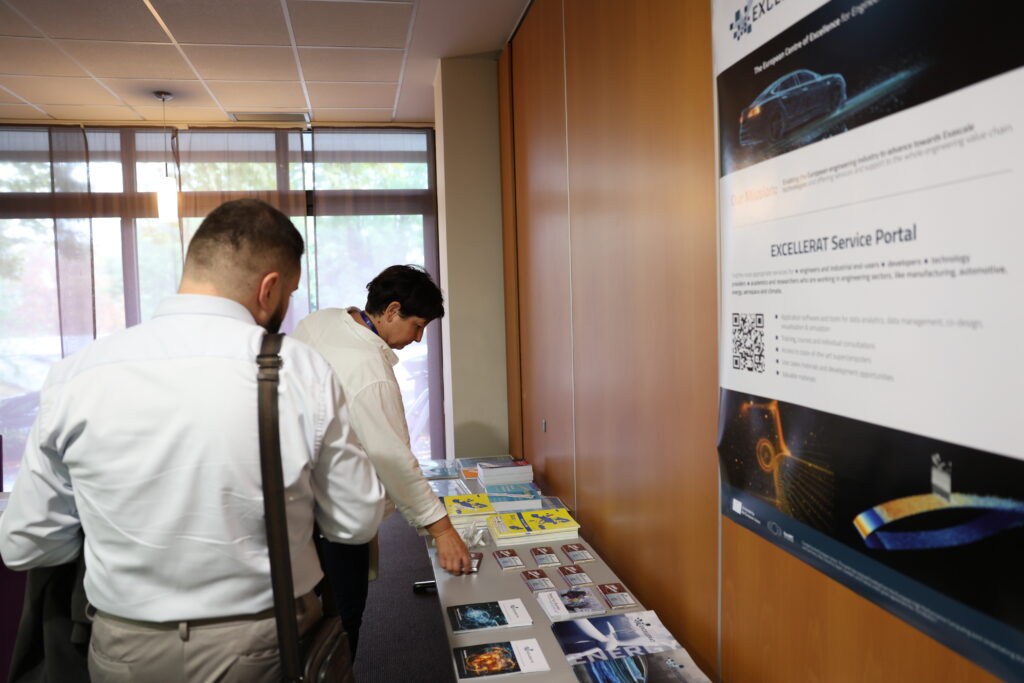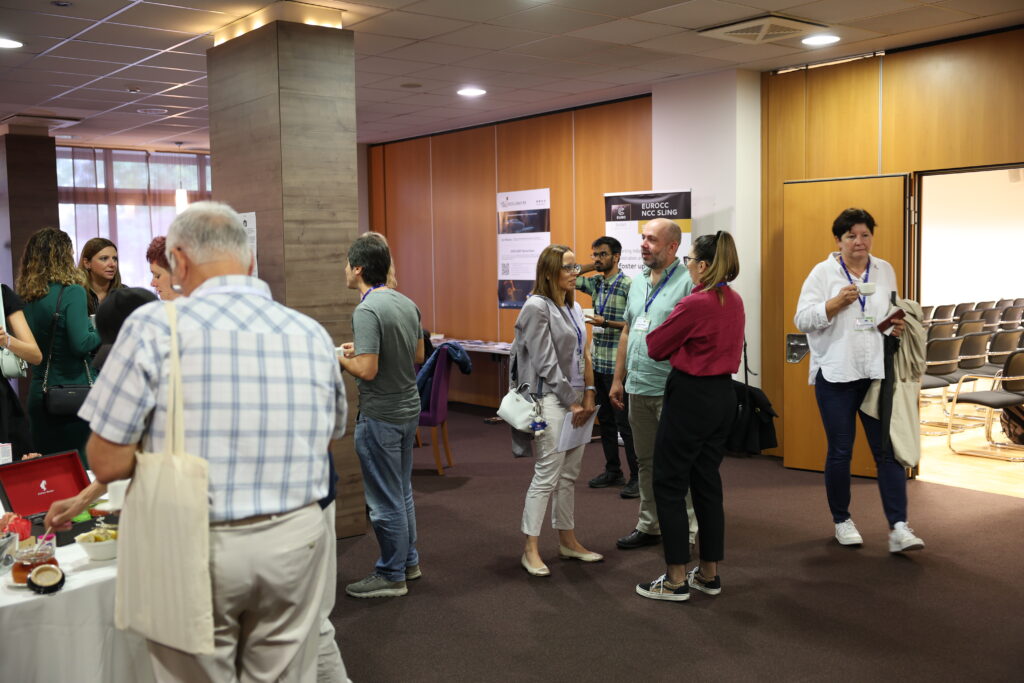EXCELLERAT P2 at SOR25


EXCELLERAT P2 was proudly represented at the 18th International Symposium on Operations Research (SOR’25), held in Bled, Slovenia, from September 24-26, 2025. This symposium serves as a regional platform for scientific exchange at the forefront of operations research, encompassing novel findings in mathematics, statistics, economics, engineering, environmental science, computer science, and more. These fields are grappling with increasingly complex computational challenges, heightening the demand for supercomputers.
At the event, Professor Janez Povh, Ph.D., from the University of Ljubljana, a partner in the project, showcased EXCELLERAT P2 at the booth in the conference hall. He elaborated on the test study involving the digital twin of ITER, a significant component of the EXCELLERAT P2 project. Through this presentation, we engaged with approximately 110 experts, users, and potential users of high-performance computing (HPC).
SOR’25 was highlighted by five distinguished keynote speakers, outstanding scientists, Prof. Tamás Terlaky from Bethlehem, PA, USA, Prof. Sanja Petrovic from Nottingham, UK, Prof. Josip Arnerić from Zagreb, Croatia, Assist. Prof. Milica Maričić from Belgrade, Serbia, and Assoc. Prof. Drago Bokal from Maribor, Slovenia. Their speeches covered topics ranging from artificial intelligence and quantum methods to employee well-being from a medical perspective.
At the conference, there were 105 papers presented altogether, which were divided into seven special sessions, one of which was also High-Performance Computing and Quantum Computing for Operations Research, organised by Prof. Janez Povh and Dr. Roman Kuželj. Here, the importance of suitable hardware for large-scale deployments was emphasized, and the importance of HPC was prioritised.
This session demonstrated that HPC is a mature technology that is gaining popularity and making significant contributions to both industrial and scientific problems. Meanwhile, quantum computing, still an emerging technology, shows promise for making an impact on scientific computing for specific applications in the future.
